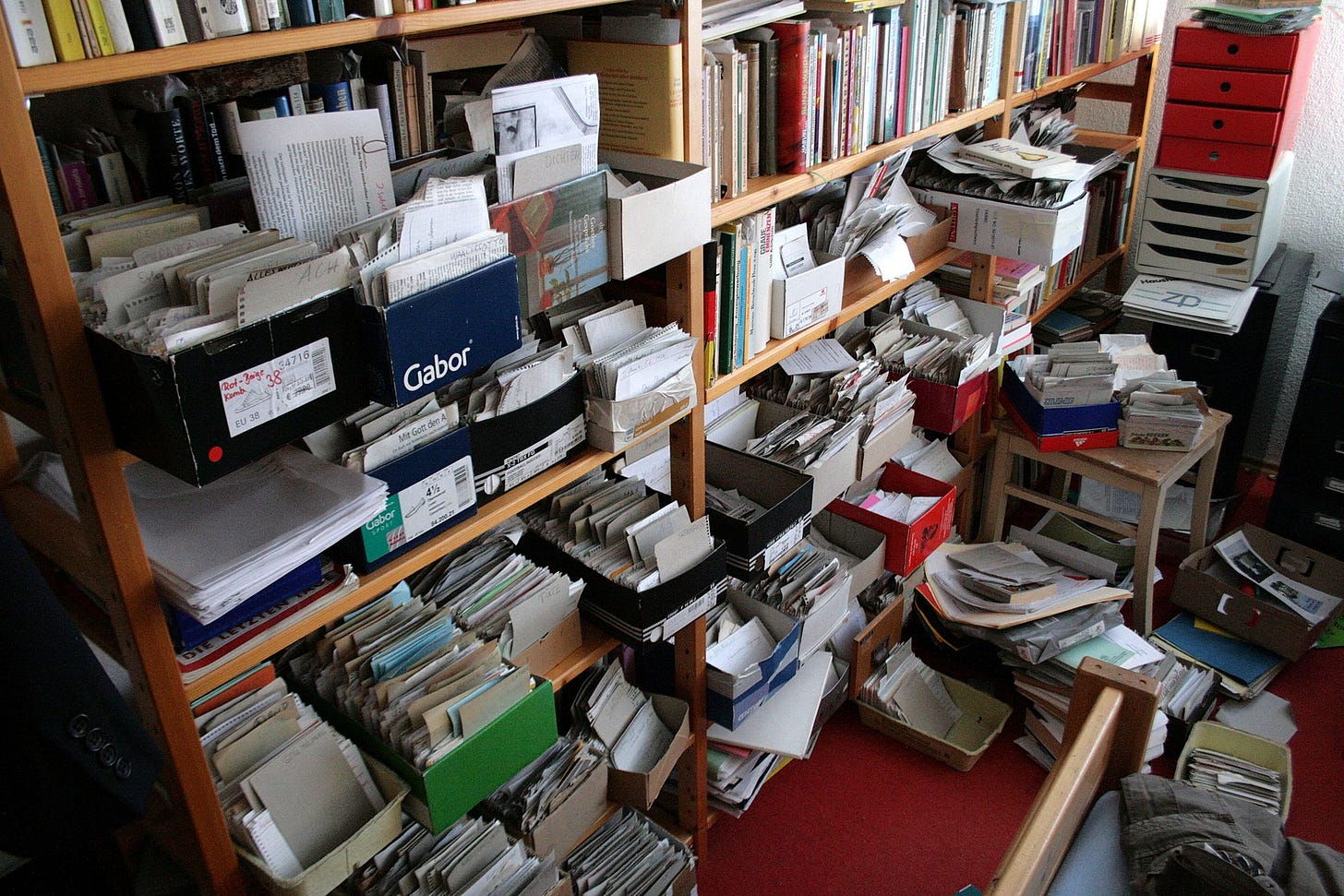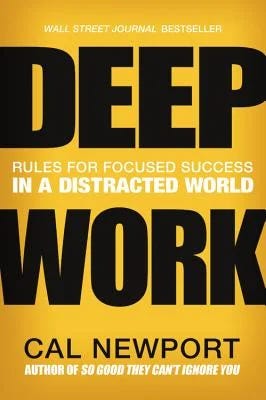A Fine Zettel of Fish
Or - Today we're going Deutsch
Denken-Think.
Last week we discussed the Commonplace book as a means of capturing and keeping organized the information we consume until we need it. As promised, this week we’ll dive into the German method, the Zettelkasten or ‘Note Box.’
A significant drawback to the commonplace book is the inability to easily move notes. The zettelkasten sought to solve this by placing each note on an individual slip of paper which could be moved and reordered as needed.
While the earliest zettelkasten date back to the mid-1500s, one of the most prolific keepers was German social scientist Niklas Luhmann (1927–1998) whose 90,000 card kasten helped him write 50 books and over 500 articles.
“What are we to do with what we have written down? Certainly, at first, we will produce mostly garbage. But we have been educated to expect something useful from our activities and soon lose confidence if nothing useful seems to result. We should, therefore, reflect on whether and how we arrange our notes so that they are available for later access.” -Niklas Luhmann

The beauty of the zettelkasten is that each note is given a distinct address, and in theory, can be retrieved rapidly.
For the system to work, several rules must be adhered to:
Each note must hold one discrete piece of information.
Notes are organized by their relationship to existing notes.
Each note must have a unique title.
Notes are linked to other notes through cross-referencing (it’s like old-fashioned hashtags).
You can use the above numbering method, alternating between numbers and letters, or develop whatever dewey-decimalesque identification system you desire.
The system is made up of several types of notes:
Fleeting notes: These are quick notes jotted down at the moment of discovery. They will be reviewed and re-written if needed at the end of the day.
Literature notes: Are taken to capture a piece of reference material. This could be a book, website, podcast, etc.
Permanent notes: These are created from your fleeting notes at the end of each day. Consideration must be given to deciding if the fleeting note is important enough to become a permanent note.
Does it:
Add to existing notes (#Cross-refrence)?
Support or contradict beliefs?
Bring up additional questions, or point to missing information to be studied further?
Reference or Index notes: These are used to help sort the permanent notes by category, and can be a place to keep your literature notes
You may be saying, “That sounds cool, but I don’t have room for a bunch of boxes full of 3x5 cards, but what I do have is a computer.”
Yes, Virginia, there is an app for that. You can develop a digital zettelkasten using Obsidian which is free for personal use and offers templates to build your own zettelkasten. I’ve just started playing with it, but it does get pretty good reviews.
Next week I’m unveiling my own information management system which is so new that it doesn’t even have a name yet (and as of press time, is only semi-developed).
I’ve got some deep work to do.
I have succumbed to peer pressure and added a buy me a coffee link. Do it or don’t. No pressure.
Lesen-Read. Deep Work
by Cal Newport
This book has been on my list since it came out in 2016, but I just got around to reading it. Cal is a professor of computer science at Georgetown University and has written extensively on productivity and digital minimalism.
Schreiben-Write.
Today I wanted to highlight a friend, and veteran writer, Ivan F. Ingraham. Ivan is the author of three novellas, The Patrol, Athena, and 22. I have known Ivan for too many years to count. He has relatively recently retired from the Marine Corps after 24 years of service and is now writing and running his leadership consulting company, Golden Compass.
You can check out Ivan’s books here:
Wiederholen-Repeat.
I have been impressed with the urgency of doing. Knowing is not enough; we must apply. Being willing is not enough; we must do. Leonardo da Vinci
The only true wisdom is in knowing you know nothing. Socrates
Knowledge is knowing that a tomato is a fruit. Wisdom is knowing not to put it in a fruit salad. Brian O'Driscoll
True scholarship consists in knowing not what things exist, but what they mean; it is not memory but judgment. James Russell Lowell
Thanks for reading. See you next Thursday!
Danke for reading Denken. Lesen. Schreiben. Wiederholen.!
Share it with a friend, or subscribe for free to receive new posts and support my work.








Luhman's methods have been a game changer for me. I have just now started getting Roam up and running so it's all digital. Ryan Holiday also uses this method but not digitally